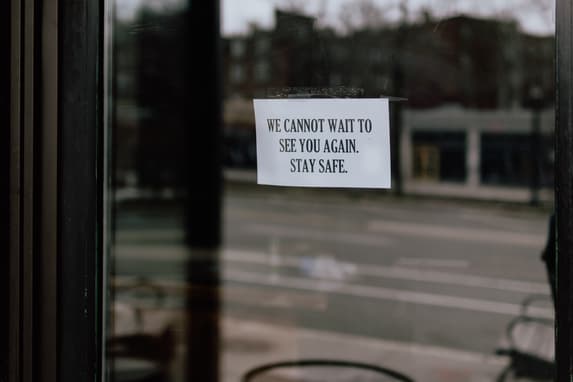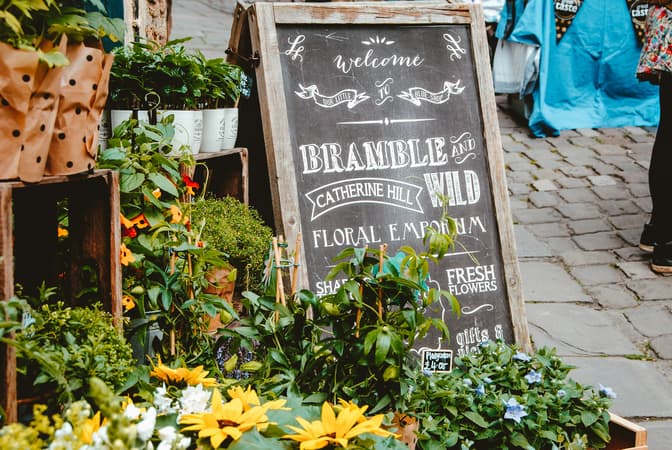Jump to a section
Have you suffered a loss of income due to the COVID-19 outbreak? The Government has announced a £30bn support package for businesses to help them navigate their way through the pandemic. Find out what schemes you can access if you require funds.
Support for small businesses
Coronavirus Business Interruption Loan Scheme (CBILS)
CBILS is a funding scheme set up by the Government and British Business Bank available to SMEs through more than 40 accredited lenders across the UK. The scheme is available to businesses with an annual turnover of up to £45million. SMEs can access finance of up to £5 million for up to 6 years. In addition to that, the Government will cover the first 12 months of interest so businesses can benefit from no upfront costs and lower initial repayments.
To access CBILS funding, you need to apply directly on the accredited lender’s site. There are over 40 lenders in the UK offering CBILS facilities including all the major banks. Full list of CBILS lenders here.
Note: the lender makes the decision whether to offer you finance. However, if you get turned down, you can still approach other lenders within the scheme.
Read more about the CBILS scheme here.
Small Business Grant Fund
If you are a small business that already pays little or no business rates because of small business rate relief (SBRR), rural rate relief (RRR) or tapered relief, the Government has offered additional funding for local authorities to support you.
If you are based in England, occupy a property and receive small business rate relief or rural relief as of 11th March 2020, you may be eligible for a one-off £10,000 grant.
To access funding, you need to contact your local authority. Not sure who your local council is? Use the search tool here.
Read more about the Small Business Grant Fund here.
Retail, Hospitality and Leisure Grant Fund
If your business operates within the retail, hospitality or leisure sector and its value is £15,000 or under, you may be eligible for a grant of £10,000. If your business is worth over £15,000 but less than £51,000, you may be eligible for a grant of up to £25,000 per property.
To apply, your business must be based in England, work in the above sector and your property needs to be used for hospitality, entertainment or leisure purposes. Note that this scheme is only available to businesses with a rateable value of £51,000 or under.
To access funding, you will have to contact your local authority. Use this search tool, to find a relevant council.
Read more about Retail, Hospitality and Leisure Grant Fund here.
Note: Similar funds have also been set up in Scotland and Northern Ireland. To find out more, click here for Scotland and Northern Ireland.
Deferral of VAT payments
If you are a UK VAT registered business and have a VAT payment due between 20 March 2020 and 30 June 2020, you now have the option to defer your payment until a later date. HMRC will not charge interest or penalties on any amount deferred but you will still need to submit your VAT returns to HMRC on time.
Support for self-employed
Self-employment Income Support Scheme
The Self-employment Income Support Scheme will allow self-employed individuals to claim a taxable grant worth 80% of trading profits up to a maximum of £2,500 per month for the next 3 months (which may be extended).
To be eligible for the scheme, you need to be self-employed and have your income affected by COVID-19, you have submitted your Self Assessment tax return for the tax year 2018-2019 and you have traded in the tax year 2019 and 2020 and are continuing to trade into 2020-2021.
The scheme isn’t open for applications yet. Once it becomes available, HMRC will contact individuals eligible for the funding. The first grants are expected to be paid by the beginning of June 2020.
Read more about the Self-employment Income Support Scheme here.
Self Employment & Universal Credit
If you are self-employed and have been affected by the COVID-19 crisis, you may be eligible for Universal Credit. It’s a monthly payment to help you with your living costs.
To be eligible, you need to be based in the UK, be over the age of 18 but under State Pension Age and have low income or be out of work.
To find out more about the Universal Credit, click here.
Deferral of self-assessment payments
If your self-assessment payment is due by 31 July 2020 but you may not be able to make the payment due to the impact of the coronavirus, you can now defer your payment until January 2021. HMRC will not apply any penalties or interest for late payments.
Other support available
Coronavirus Job Retention Scheme
The Coronavirus Job Retention Scheme, also known as Furlough Scheme will allow employers to have part of their employees’ salaries paid by the Government so those that would otherwise have been laid off during this crisis can retain their jobs.
HMRC will pay employers a grant of up to 80% of an employee’s usual wage (up to £2,500 a month) along with the associated National Insurance and minimum pension contributions. The scheme is initially open for 3 months with a view to be extended if necessary.
To be eligible for the scheme, you need to be a UK employer with a PAYE scheme started on or before 28 February 2020 and have an UK bank account.
To find out more about the Job Retention scheme, click here.
Employment & Support Allowance
Employment & Support Allowance (ESA) is a scheme set up for those with disabilities or health conditions that may be affecting how much you can work. You can apply whether you are in or out of work, you just need to be under State Pension Age.
Read more about the ESA here.
Citizen’s Advice
If you are struggling with the living costs, you might be able to get help from your local council or an interest-free loan from the government.
To find out more, click here.
Emergency Funding
If you require help for essentials like food due to a job loss, you may be eligible for an emergency fund.
Click here to find out more about the emergency funding.










